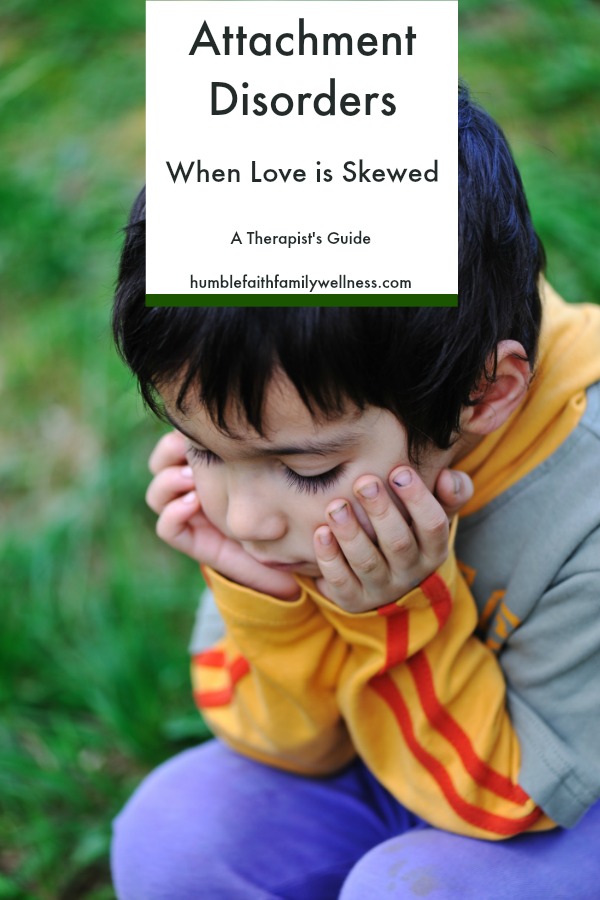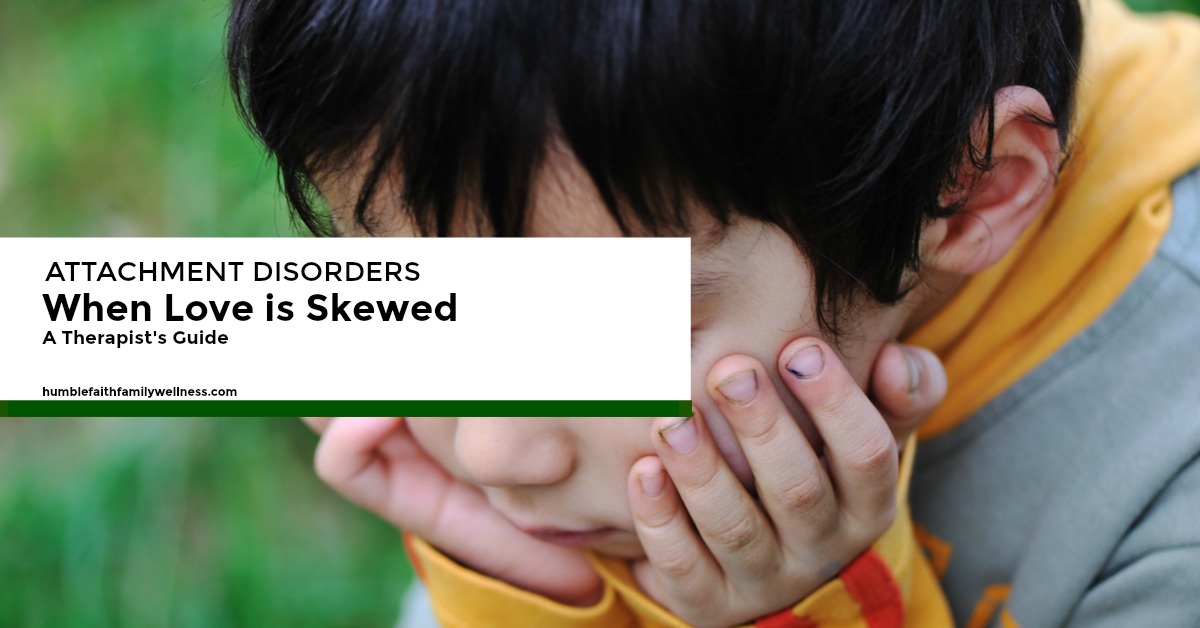
This post contains affiliates. The links come at no extra cost to you but provide me a small commission if you use them.
When Love is Skewed
I am a Christian mental health therapist. Over the years I have worked with hundreds of adopted children and children who have been in the foster care system. It is a topic that God has placed near and dear to my heart!
It takes a special person and family to take in children and offer love and protection. I truly believe this is a calling from God for some individuals.
What I also have come to experience is there is not nearly enough information and training to help equip adoptive parents and foster parents to understand and help care for these children in the ways that they need.
Many children who are adopted or in the foster care system have attachment issues or a full attachment disorder. This is not a choice but rather how their brain has become wired to view the world.
For greater information on what is attachment and attachment disorders please refer to my post Information You Must Know as an Adoptive Parent: A Therapist’s Guide to Attachment Disorders.
A child’s concept of love becomes skewed when they have attachment issues and then greatly effects how they interact in relationships.
Love is abstract
To define love is difficult for most children. But love for children with secure attachment is easy to experience. Unfortunately, love for children with attachment disorders is confusing. If flies in the face of how they view the world-not safe and not going to provide.
Love is not tangible. It’s an experience. A feeling. But it then often gets equated with material items for children with attachment issues. This is why they tend to collect or hoard items. They are trying to acquire things to increase their love.
I recommend to my clients to take the time to help their adoptive children define love. This can be done through conversations but often it is more effective as a writing or art project. I had one family come up with a definition of love and then they had it put on a canvas. While the words may be abstract to their adoptive child, the canvas is a tangible reminder that they are able to refer him to.
Love is viewed as finite
In secure attachments, love is understood to be infinite. It never ends. It just gets bigger and you get more. Love is viewed as finite however for children with attachment issues. They believe a person only has so much to go around and other people can take their love. For example, if a parent is giving one child a hug, then a child with attachment issues legitimately believes they are losing love. Or the other child is receiving their love.
Think of it in terms of a pizza. There are only so many pieces to go around. Right. So if there are eight pieces and you want three of them but other people are eating too you may only get two pieces. You lose out on a piece of the pizza. This is how a child with attachment issues views love.
Children with a more secure attachment think of love in terms of a chocolate fountain. It just keeps going and going. No one is taking the chocolate you want because there is an endless supply.
I recommend to my clients to often remind their adoptive child of this understanding of love. For example, “Billy, just because I’m taking Johnny clothes shopping doesn’t mean I love him more. He just grew two inches over the summer and doesn’t have any pants that fit.” I know it seems like Billy should just understand why you are taking Johnny shopping. But he doesn’t. His thoughts and emotions are going to revert to irrational feelings of insecurity over logical understanding.
Leaky Bucket Love
Children with attachment issues also struggle to hold on to experiences of love. Remember they innately view the world as unsafe. There is a belief that the world will eventually harm them. The result is a feeling of insecurity. They need constant reassurance and affirmations. (or are constantly asking for tangible items) Unfortunately, they may not seek your comfort. Children with attachment issues need you to tell them and show them that they are wanted.
Even when they are behaving poorly. There is always an emotion driving the behavior.
I always recommend scheduled one on one time to my clients who have children with attachment disorders. This helps to reinforce for the child that they are wanted no matter how they behave.
Quantity not quality
Would you rather have the best and most decadent piece of chocolate you can find or a whole bag of cheap, waxy chocolate? Most people will pick the high quality chocolate. But not a child with an attachment disorder. They will always choose quantity!
This is also true of time with you. A child with an attachment disorder would rather have quantity of time with you. (Even if it is not positive time) Over having less frequent quality interactions. Again, love is viewed as tangible and finite. If you are not spending time with them then that means your love is going elsewhere and they are getting less of it.
I certainly don’t recommend to my clients that they need to spend all of their time with their adoptive children. I do, however, remind them of the struggles their child is going to have with understanding this concept. Children with attachment issues often do much better with small outings and interactions more frequently verses a large interaction. Again, they don’t often have the ability to hold onto and retain the experience and equate it with love.
There is information on attachment disorders everywhere however not all of it is accurate or beneficial. I highly recommend and trust information from Daniel Siegel, Peter Levine, and Bessel van der Kolk.
The book When Love is Not Enough is also a good introductory book to Reactive Attachment Disorders and attachment issues.
I sincerely hope this post has helped you to better understand your adoptive child. I pray that you and your child are seeking support or make the decision to do so. Please check out my other posts on attachment disorder for more information.
God Bless,
Melissa Gendreau

wow this post had me in tears. you are a nero in my books, your job alone and the love you give out
Thank you very much for such kind words. It’s an honor to help God’s children in anyway I can. Thank you for reading and commenting! God Bless!
Really good tips you have there
Thank you for reading and commenting! God Bless!
I never knew that love could be viewed as finite. How sad that the adoptive kids can’t instinctively feel secure and loved. No wonder they act out so much!
It is incredibly sad. Certainly not the way God intended people to view love. It is a topic that need more awareness. Thank you for reading and commenting. God Bless!
My husband was adopted and I think he didn’t struggle with this as bad or for as long because of the grace of Christ. He was in foster care since age 9 and adopted at 13. It was tough. Our hearts are definitely praying about adoption moving forward because like you described, love is more like a fountain than a pizza. If all the other resources are in line it’s not really that much more to give one more hug. It meant the world to my husband when he was growing up.
I’m so happy to hear his struggle was lessened. Some children certainly have less difficulties than others. God’s grace for sure! Some experiences the children did and did not have to endure as well as for how long all can play a role as well. Thank you for reading and commenting! God Bless!
We took in a guy who had aged out of the foster system so he could learn how to financial take care of himself as well as attend college. It was so interesting that because of his time in foster care, he believed people only took him in to receive money. That is never something I ever would have thought of but something he dealt with internally.
It’s sad and incredibly common. The view is that people only do things to benefit themselves so when others do kind things for them, the perception becomes there must be an ulterior motive. Thank you for reading and commenting. God Bless!
Thanks for this post. I’ve seen several friends struggle through attachment disorders with their adopted children. Bookmarking this as a resource to use later.
I’m glad you found the post helpful. I have a category for adoption that will continue to grow! Thank you for reading and commenting! God Bless!
Thank you for this! It helps me to understand a little better what my friends and their adopted children are experiencing.
It is an incredibly difficult process even in the best of circumstances which I fear is exactly why the information is not as forthcoming during the adoption process. There is worry that people would shy away. But with information given, a person can be better equipped. Thank you for reading and commenting! God Bless!